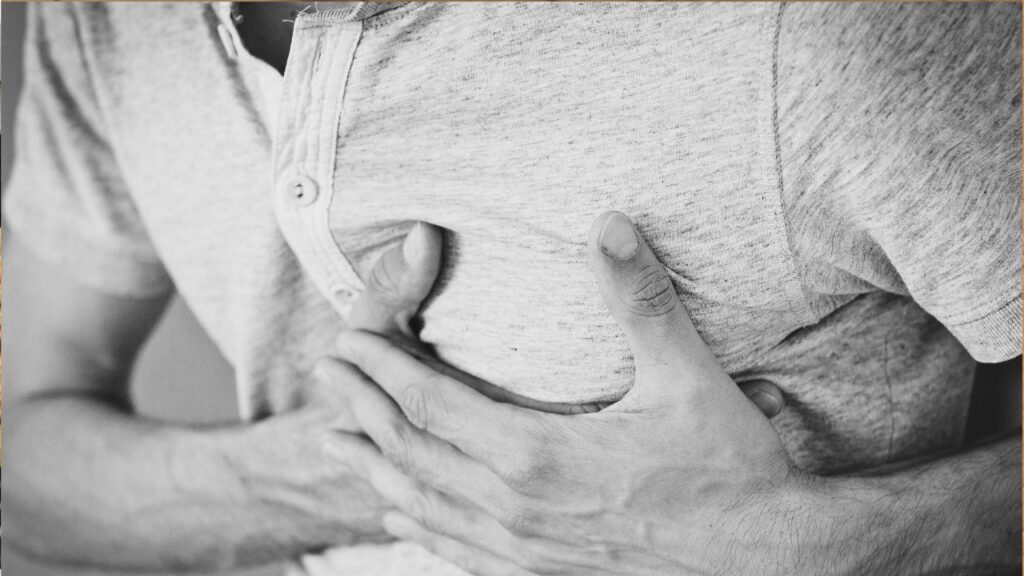Don’t Ignore These Strange Symptoms: They Might Be Warning You of a Heart Attack

Don’t Ignore These Strange Symptoms: They Might Be Warning You of a Heart Attack
Heart attacks often strike suddenly, but they rarely come without warning. While dramatic chest pain is the most well-known symptom, many people experience more subtle, early signs that are often mistaken for everyday ailments like fatigue, indigestion, or stress. Recognising these early symptoms, sometimes days or even weeks before a heart attack, can be life-saving, especially for those with existing risk factors like high blood pressure, diabetes, smoking habits, or a family history of heart disease.
According to the American Heart Association (AHA), getting treatment within the “golden hour”, the first 60 minutes of symptoms, can reduce heart muscle damage by up to 50%. But many people ignore the early signs or misread them, leading to delays that could result in serious complications. In a country like India, where heart disease remains the leading cause of death, knowing what to look out for has never been more important.
Fatigue

One of the most overlooked early signs of a heart attack is extreme tiredness. If you’re feeling worn out despite getting enough sleep and not doing anything physically demanding, your body may be signalling that your heart is struggling. This can happen because the heart isn’t pumping enough oxygen-rich blood to meet the body’s needs, leading to a general sense of weakness.
Mild but Persistent Chest Discomfort

People often assume that only severe chest pain means a heart attack. But in reality, many experience mild discomfort, such as tightness, pressure, or a squeezing feeling, that comes and goes. It’s easy to mistake this for indigestion or muscle strain, especially when the sensation isn’t sharp or intense. However, any unusual chest sensation should not be ignored.
Breathlessness During Routine Tasks
Another red flag is shortness of breath, especially while doing normal activities like walking, climbing stairs, or even getting out of bed. If you find yourself catching your breath more often than usual, it might be because your heart isn’t pumping efficiently, causing fluid to build up in the lungs. This symptom can appear well before an actual heart attack.
Pain in Unexpected Places
Heart-related discomfort doesn’t always stay in the chest. It can radiate to other areas like the neck, jaw, shoulders, arms, or back. This type of referred pain is more common in women and can be misleading. The pain may not be consistent and might come and go, which makes it easier to ignore or misattribute to something less serious.
Feeling Dizzy or Nauseated Without Cause
If you suddenly feel lightheaded, dizzy, or nauseous for no apparent reason, it could be related to poor blood flow caused by heart trouble. A drop in blood supply to the brain or digestive system can result in these symptoms, and they should not be brushed off, especially if they happen with other signs.
Unusual Sweating
Breaking into a cold sweat while doing very little, or nothing at all, can be a signal of heart stress. This type of sweating feels different from regular perspiration due to heat or exercise. It’s often described as clammy and comes on suddenly. People might mistake it for anxiety or the flu, but it can be an early heart warning.
Irregular Heartbeat or Palpitations
Heart palpitations, or a feeling like your heart is racing, fluttering, or skipping a beat, can sometimes be harmless. But when they happen often and without any clear reason like caffeine or stress, they may be linked to an overworked or malfunctioning heart. These sensations shouldn’t be ignored.
Swelling in Legs or Feet

Swelling in the ankles, legs, or feet can happen when the heart can’t pump blood properly, causing fluid to build up in the lower parts of the body. Known as peripheral edema, this can also cause your shoes to feel tighter or leave marks on your skin from socks or footwear.
Indigestion

Many people who later suffered heart attacks reported having persistent indigestion or heartburn beforehand. Because the symptoms mimic common digestive issues, they’re often ignored. But when acid reflux or bloating becomes frequent and doesn’t respond to usual remedies, it’s worth getting checked out.
A Sudden Sense of Anxiety or Dread
Some individuals report feeling an unexplainable sense of unease or doom in the days leading up to a heart attack. While this can be easily dismissed as stress, it could actually be your body warning you that something serious is about to happen. This symptom is especially common in silent heart attacks, which occur without the usual signs.
If you or someone around you notices any combination of these symptoms, especially if you’re in a high-risk group, don’t wait to seek help.












